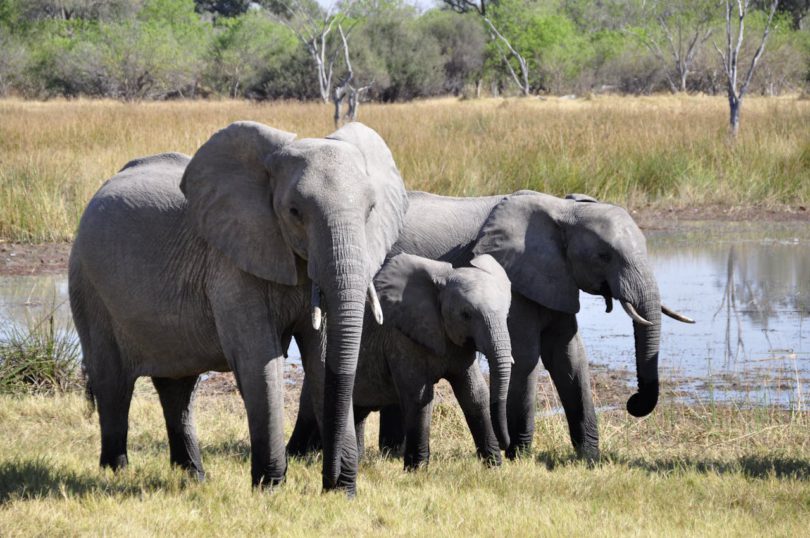Elephants are often celebrated for their intelligence and remarkable memory. The saying “an elephant never forgets” isn’t just a catchy proverb—it reflects real behaviors and abilities observed in these gentle giants. From remembering water sources across vast landscapes to recognizing distant relatives after years apart, elephants exhibit cognitive skills that are impressive even by human standards. But what exactly makes their memory so extraordinary, and why is it crucial for their survival?
The Anatomy of an Elephant Brain
Part of what makes elephants’ memory so powerful is their brain structure. Elephant brains are enormous, weighing up to 5 kilograms (about 11 pounds), and they have a highly developed hippocampus, the region associated with memory and spatial awareness. The temporal lobes, involved in processing sensory input and social information, are also highly developed. This combination allows elephants not only to recall locations but also to process complex social interactions, recognize individuals, and adapt to changing environments.
Interestingly, elephants have more neurons in their cerebral cortex than most other land mammals, which supports their ability to solve problems, use tools, and communicate in sophisticated ways. These neurological adaptations form the foundation of their legendary memory.
Types of Elephant Memory
Elephants rely on several types of memory, each serving different survival functions.
- Spatial Memory: Elephants can remember the locations of waterholes, feeding grounds, and migration routes over long distances and years. In the dry season, matriarchs—typically the oldest and most experienced females—lead the herd to water and food sources they have memorized from previous years. This knowledge is essential for survival, especially in arid environments where resources are scarce.
- Social Memory: Elephants live in complex social groups, and recognizing family members, friends, and rivals is vital. Studies have shown that elephants can remember individuals even after long separations, and they react differently to familiar and unfamiliar individuals. Such social memory helps maintain bonds, avoid conflicts, and coordinate group behavior.
- Event Memory: Elephants can recall past experiences, including encounters with predators, humans, or dangerous situations. This type of memory enables them to avoid threats and make decisions based on prior knowledge. For example, elephants in areas affected by poaching have been observed avoiding certain locations where threats were encountered years before.
How Memory Supports Survival
The elephant’s remarkable memory isn’t just impressive—it’s essential for survival. In ecosystems where water and food availability fluctuate seasonally, remembering the location of resources can mean the difference between life and death. Matriarchs often guide herds over long distances, drawing on decades of accumulated knowledge. Younger elephants learn from these leaders, passing memory and experience down through generations.
Memory also plays a critical role in social cohesion. Elephants that recognize kin and maintain social bonds tend to live longer and reproduce more successfully. This social intelligence supports cooperation within herds, facilitates learning, and ensures the transfer of survival skills.
Observing Elephant Intelligence
Wildlife researchers have long studied elephants to understand their cognitive abilities. Experiments have shown that elephants can solve problems, use tools, and demonstrate empathy, suggesting that memory and intelligence are deeply interconnected. They respond to distress calls, assist injured herd members, and even show signs of mourning for deceased companions—behaviors that require both memory and social understanding.
Misconceptions and Myths
While “elephants never forget” is generally accurate, it’s not absolute. Like all animals, elephants have limits to their memory, and individual variation exists. Factors such as age, experience, stress, and health can influence cognitive performance. Nevertheless, compared to many other species, elephants’ ability to remember events, individuals, and locations is extraordinary.
Protecting Elephants and Their Legacy
Understanding elephant memory underscores the importance of conservation. Protecting habitats, migration corridors, and social groups ensures that elephants can continue to thrive and pass on crucial knowledge. Human activities such as habitat destruction and poaching not only threaten elephants’ survival but also disrupt the social learning and memory transmission that are essential for herd resilience.
Conclusion
The memory of elephants is a testament to the complexity and intelligence of the animal kingdom. Far beyond folklore, their ability to remember places, individuals, and past experiences plays a critical role in their survival and social life. Watching elephants interact, navigate vast landscapes, and care for one another offers a glimpse into a world where memory is a living, vital force—one that has allowed these majestic creatures to endure for millions of years. Truly, when it comes to memory, elephants stand unmatched among land mammals.

